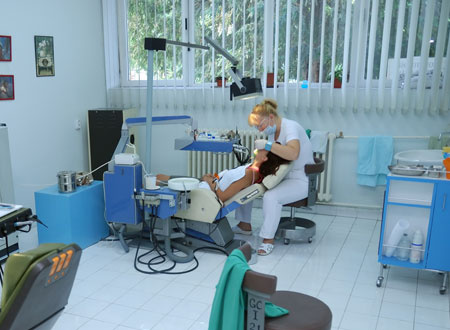Unlike most people I enjoy going to the dentist. As a child I had a dentist who knew how to entertain his patients while performing dental procedures that were usually painless. When my dentist retired his son took over the practice and continued the family tradition of making the patients feel at ease. It’s good that I have always had access to exceptional dental care since I was not blessed with good teeth. My numerous childhood fillings resulted in a lot of crowns and root canals as an adult.
Fortunately my personal experience has helped me understand the important features of good dental plan and how to assist my clients in evaluating these plans. Here is my advice for buying dental insurance:
- If you are leaving your current employer and have a dental plan that fits your needs, your best option might be to take the dental part of COBRA. Even if you do not take the medical part of COBRA, you normally can accept the dental and stay on it for 18months. The monthly premiums might be lower than your other options. If you have a child who needs braces and your current plan offers Orthodontia, you should stay on this plan. Dental plans that individuals purchase do not include Orthodontia.
- Although most dental plans cover 100% of two cleanings (preventative) per year, some will only cover one or require you to pay a co-pay or percentage. Make sure you understand what you will be required to pay for preventative.
- Dental plans usually have a 6 month waiting period before they cover basic services such as fillings, extractions, oral surgery and root canals. For major services such as crowns and bridges there is often a 12 month waiting period. When you leave a dental plan they provide a Certificate of Coverage showing the start and end dates of your dental coverage. Some dental plans will waive these waiting periods if you can provide a Certificate of Coverage showing that you have not had a break in dental coverage of more than 63 days during the past 18 months.
- Check to see if your dentist is in the plan’s network and ask questions about how the plan will pay if you go outside of this network. Since your dentist will probably not be able to perform all procedures such as root canals and oral surgeries, it is also important to know if specialists such as oral surgeons and endodontists are in the network in your area.
- Understand the cancellation policies and initial enrollment fees of all the plans you consider. Initial enrollment fees and a 12 month requirement to remain on the plan are not a problem if you are a retiree or self employed individual who expects to be on the dental plan for a long period. However, if you are currently unemployed, but expect to be employed within a few months in a job that provides dental benefits this could be a problem.
- When you do your cost comparison don’t just consider the monthly premiums. Also compare deductibles, yearly maximums and percentages that each plan pays for various procedures. Some plans will increase your yearly maximum if you remain on the policy a specific number of years.


4 Comments
WandaMarch 23, 2013 at 3:38 pm
… [Trackback]…
[…] There you will find 23901 more Infos: hisonc.com/health-insurance-2/5-tips-for-choosing-the-best-dental-plan/ […]…
WandaMarch 23, 2013 at 3:38 pm
Thank you for all this great information about choosing insurance! One thing that really stood out to me is that you say that most plans cover 2 cleanings a year! Since my family is used to doing that anyway, this sounds great ot us.
WandaMarch 23, 2013 at 3:38 pm
I really appreciate your tip to check how much you will be responsible to pay for preventative. My wife and I have been thinking of getting a new dentist for our kids so that they can have good oral hygiene. I will be sure to tell my wife that we should try and find out how much we should be paying!